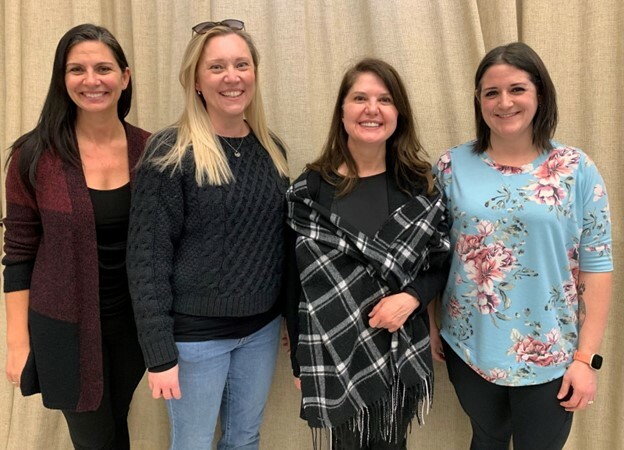Counselling Supports

School Counsellors play a crucial role in supporting students' academic, social, and emotional development. Our School Counsellors support students, families and staff in the following ways:
- Social and Emotional Support:
- Providing counselling services to help students navigate personal, family, and social issues.
- Support during difficult times, such as family problems, peer conflict, or emotional struggles.
- Counsellors can also help build self-esteem, self-confidence, boundary setting, social skills and goal setting.
- Crisis Intervention:
- Responding to immediate crises, such as accidents, violence, or other emergencies affecting the school community.
- Collaborating with other school staff and community resources to provide support during crises.
- Academic Support:
- Assisting students in developing effective study habits and time management skills.
- Identifying and addressing academic challenges, such as learning disabilities or behavioural issues.
- Collaborating with teachers and parents to create academic intervention plans.
- Collaboration with Stakeholders:
- Working closely with teachers, administrators, and parents to support students holistically.
- Collaborate with community resources, such as Alberta Health Services, FCSS, Family Resource Hubs, Family Supports for Children with Disabilities (FSCD), and FASD Alberta to provide additional support.
Family School Liaison Program

Working together to meet the social and emotional needs of children and youth
The Family School Liaison Program is a free-of-charge, client-based, goal-focused program provided through local municipalities. This program is also supported by Aspen View Public Schools and Alberta Health Services ‑ Mental Health.
The program is designed to meet the social and emotional needs of children and youth who are experiencing difficulties. It provides support, encouragement and ideas in a non-judgmental, confidential manner.
The program is preventative and involvement is voluntary and intended to be short-term.
The Family School Liaison Worker will work with your child to:
- Provide regular sessions with the child or youth to help him/her succeed in achieving the goals that have been set.
- Liaison with the families and school staff to further support the child or youth.
- Facilitate specialized small groups of students with similar goals.
- Provide resources and information to children, youth, families, and/or school staff.
** Some requests for services may not be suitable for the Family School Liaison Program. In such cases, a referral to other services and/or resources will be made. **
Individual goals may focus on:
- Emotional Concerns: self-esteem, self-control, managing emotions, grief and loss, stress, changes, coping skills, etc.
- Social Concerns: problem solving, social skills, communication, relationships with friends/peers, etc.
- Family Concerns: divorce or separation, parent-child conflict, sibling conflict, etc.
- School Based Concerns: transition to a new school, relationships with others, some classroom issues, etc.
The goal of this program is to encourage individual growth and development for personal well-being.
How can services be accessed?
Children, youth, parents/guardians, school staff, or community members can contact a worker directly through Family and Community Support Services or through school counsellors or administrators.
Athabasca County
Within Athabasca County, the Family School Liaison Program is by provided by Athabasca County Family & Community Support Services (FCSS) through Aspen View Public Schools at:
- Whispering Hills Primary School
- Landing Trail Intermediate School
- Edwin Parr Composite School
- The Centre for Alternative & Virtual Education (The CAVE)
- Boyle School
- Grassland School
To access the Athabasca County Family School Liaison Program, please contact:
Athabasca County FCSS Program
3598 48 Ave.
Athabasca, AB T9S 1T9
Phone: 780-675-2623
Thorhild County
Within Thorhild County, the Family School Liaison Program is offered by Thorhild County through Aspen View Public Schools at:
- Thorhild Central School
To access the Thorhild County Family School Liaison Program, please contact:
Family School Liaison
Phone: 780-398-2813
Corinne.Arsenault@thorhildcounty.com
Smoky Lake County
Within Smoky Lake County, the Family School Liaison Program is offered through Aspen View Public Schools at:
- H.A. Kostash School
- Vilna School
To access the Smoky Lake County Family School Liaison Program, please contact:
Smoky Lake County Family School Liaison Worker
Lauren Melnyk
Phone: 780-656-3820
M.D. of Lesser Slave River
Within the Municipal District of Lesser Slave River, the Family School Liaison Program is offered through Aspen View Public Schools at:
- Smith School
To access the Smith School Family School Liaison Program, please contact:
Smith School Family School Liaison Worker
Rebecca Weber
Phone: 780-829-3979
Email: rebecca.weber@aspenview.org
Helping Children Deal with Trauma and Grief
Children experience trauma and grief differently than adults. Try not to assume that your child is experiencing what you, as an adult, are experiencing.
Many parents 'have a talk' with their child about the traumatic incident. Although talking with your child is important, it's more important to listen to your child so you know what they're experiencing.
Try asking your child these questions, and listen carefully to their responses. You may find that your child has been impacted by the trauma in ways you did not expect.
Ask your child:
- What worries you the most now?
- What upsets you the most now?
- What is the worst part or the hardest part for you now?
- What helps you feel a little better?
- What helps you feel a little safer?
- Do you have any questions about what happened or anything anyone has said?
What Can You Do?
- Reassure your child that they are safe.
- Listen.
- Maintain routines.
- Turn off the TV, or only watch shows that aren't covering the incident. Some adolescents or older children may need to watch because, like adults, they have a need to know. But try to keep it to a minimum, and be sure to discuss what they saw and heard. Ask questions and listen carefully to responses and opinions.
- Allow your child to be sad or afraid. Reassure them that you will be there to take care of them. Tell them that the sadness, hurt or fear they feel will change in time.
- Encourage your child to exercise some sense of control over the next few days by letting them make decisions about what they eat, wear, etc.
- Spend time together; really together, not you in one part of the house while your child is in another part of the house.
- Encourage your child to engage in physical activities or other activities that help them feel better.
- When needed, separate fact from fiction. Fiction tends to escalate fears.
- Do not speculate or exaggerate.
Do's and Don'ts
DO ... feel comfortable asking for help from counsellors and mental health supports provided through the school or community.
DO ... develop an environment where children feel safe to ask questions and are confident of receiving honest answers.
DO ... use correct terminology to provide information and reassurances.
DO ... listen and empathize. Make sure you hear what is said, not what they think your child ought to have said.
DO ... allow the students to express as much grief as they are able or willing to share with you.
DO ... share your own feelings.
DO ... say "I don't know" when you don't know.
DO ... maintain a sympathetic attitude toward age-appropriate responses from your child.
DON'T ... force your child to participate in a discussion about death.
DON'T ... be judgmental; don't lecture.
DON'T ... force a 'regular day' on a grieving child, but at the same time, don't allow their day to be totally unstructured. Offer choices of activities like journals, discussion, physical activity, etc.
DON'T ... say "I know how you feel" unless you truly do.
DON'T ... force others to look for something positive in the situation.
DON'T ... feel you have to handle this alone. Ask for help.
DON'T ... expect adult responses from children and teenagers. Their responses to grief may seem inappropriate to you.
Sources: Hastings and Prince Edward District School Board
Alan D. Wolfelt, PhD
Inclusive Education
For more information on Inclusive Education, please visit the following links:
Inclusive Education Video Series
Appuyer tous les élèves/Éducation inclusive
Kim Carson, Associate Superintendent of Human Resources and Student Services, can be reached at 780-675-7080 for additional information.
Safe & Caring Schools

Aspen View Public Schools is committed to ensuring that each student and staff member is provided with a welcoming, caring, respectful and safe environment that respects diversity and fosters a sense of belonging and a positive sense of self.
We value all members of our educational community in which everyone deserves to be treated with dignity and respect.
We value and respect diversity, and strive to treat others with kindness, caring and tolerance. Students, staff and visitors are expected to model and to reinforce these beliefs and values.
Aspen View has in place the following policies and procedures to ensure our programs, operations and practices meet these goals:
Policy 33: Welcoming, Caring, Respectful and Safe Environments
Individualized Program Plans (IPPs)

Students are at the center of the Individualized Program Plan and Individual Student Profile (IPP/ISP) process. When the focus is on students' individual strengths, needs and participation, the IPP/ISP process can provide many benefits for all partners.
Individualized Program Plans and Instructional Support Plans (IPPs and ISPs)
An effective, student-focused IPP/ISP process can:
- Encourage well-articulated instructional and assessment plans
- Increase understanding of individual students' learning needs and strengths
- Enhance communication between teachers, parents and students
- Build students the skills and knowledge in order to be effective self-advocates and participants in their own learning
- Help create a long-term plan that can help families with transitions and future planning
Every Child Matters

If you are a former student or have been affected by residential schools and need crisis support or counselling, the First Nations Health Authority has a 24-hour National Residential School Crisis line available in French and English at 1-866-925-4419. The Indian Residential School Survivors Society can also offer support at 1-800-721-0066.
KUU-US Crisis Line Society has a culturally safe First Nations and Indigenous specific crisis line that is available 24 hours a day.
Adults/Elders: 1-800-588-8717
Youth: 250-723-2040
Or, online.
Talk 4 Healing has a culturally-grounded helpline for Indigenous women, available 24 hours per day at: 1-855-554-HEAL. Their crisis line is: 1-888-200-9997.
https://wellnesstogether.ca/en-CA
Helping Children Deal with Trauma & Grief
Kids Help Phone: 1-800-668-6868
Text: 686868
